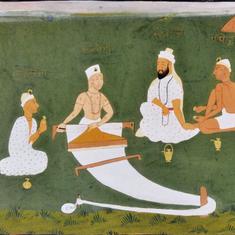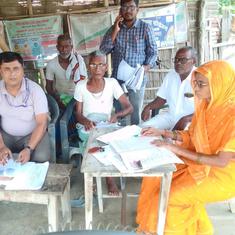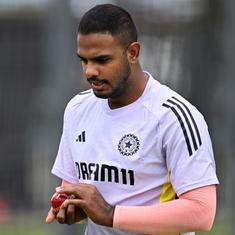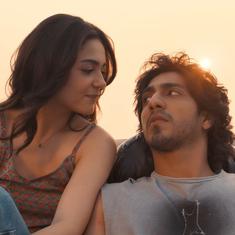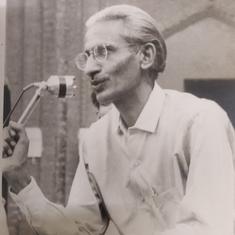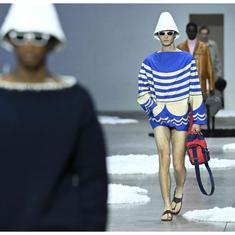Sushma Swaraj says ICJ order staying Kulbhushan Jadhav’s execution is a ‘great relief’
Pakistan said India tried to ‘hide its real face’ by taking the case to the UN court, and that it would present evidence against Jadhav at the Hague.

The International Court of Justice on Thursday ordered Pakistan not to execute Indian Kulbhushan Jadhav until the case is disposed of. Judge Ronny Abraham, president of the ICJ, read out the verdict, in which he said the court has jurisdiction in the case of the Indian who was sentenced to death after being convicted of espionage in Pakistan.
The Hague also said that India should be allowed consular access to Kulbhushan Jadhav. India had emphasised its lack of consular access, despite numerous requests it had made to Pakistan.
Pakistan, however, questioned the ICJ’s jurisdiction in the matter and maintained that India has no case.
On May 15, the Hague had heard India and Pakistan’s arguments on the death sentence given to the former Navy officer. There have been instances where countries have nullified or violated the ICJ’s judgments before, though.
Here is how the day unfolded:
6.40 pm: In a statement, Pakistan maintains that India “has no substance in the case”. It said the ICJ’s order was stated by way of provisional measures, and are without prejudice to the final verdict in the case. Pakistan also said that it had attended the hearing out of “utmost respect for the Court” and that the only way to challenge its jurisdiction in the matter is to attend the hearings, not to abstain from the process.
“Pakistan attended because of its conviction that the only way to resolve all outstanding issues is through peaceful means. We are confident that India would not be able to hide the subversive activities it is trying to carry out through its agents like Commander Jadhav.”
6.35 pm: Prime Minister Narendra Modi thanks the External Affairs ministry for their work, and extends his appreciation to advocate Harish Salve for presenting India’s case at the ICJ.
6.30 pm: The MEA also said the ICJ’s order is legally binding on Pakistan.
6.15 pm: The Ministry of External Affairs says it will do everything possible to save Jadhav’s life. “The provisional relief provided by the ICJ is the first step towards ensuring justice to Kulbhushan Jadhav,” said Gopal Baglay, MEA spokesperson.
We hope it will help remedy egregious violations of Jadhav's rights & violations of international convention by Pak: MEA #KulbhushanJadhav pic.twitter.com/s9Pm4pTZcD
— ANI (@ANI_news) May 18, 2017
5.30 pm: The Pakistan Foreign Office states that India tried “to hide its real face” in taking Jadhav’s case to the UN court. It adds that they will present “solid evidence” against Jadhav in the court, PTI reports.
India is trying to defend a person whose actions led to killing of scores of innocent Pakistanis-Pak Foreign Ministry Spox #KulbhushanJadhav pic.twitter.com/BiZ7dG4Gm8
— ANI (@ANI_news) May 18, 2017
5.05 pm: Home Minister Rajnath Singh also reacts.
ICJ's decision to stay the execution of #KulbhushanJadhav gives people of India a deep sense of satisfaction and relief: HM Rajnath Singh pic.twitter.com/OT2UGMj1qE
— ANI (@ANI_news) May 18, 2017
5 pm: Union minister Arun Jaitley congratulates Sushma Swaraj, lawyer Harish Salve, and the Hague, and says he is relieved and satisfied by the order.
#ICJ verdict endorses the relevance and necessity of procedural and substantive fairness which was denied by Pakistan
— Arun Jaitley (@arunjaitley) May 18, 2017
4.30 pm: The Congress says the government needs to use the ICJ’s decision as a “trigger” to bring Jadhav back to the country.
4.20 pm: External Affairs Minister Sushma Swaraj says the ICJ order is a “big relief” to Jadhav’s family and the “people of India”. She thanks Harish Salve for arguing the case “so effectively” at the court.
I assure the nation that under the leadership of Prime Minister Modi we will leave no stone unturned to save #KulbhushanJadhav.
— Sushma Swaraj (@SushmaSwaraj) May 18, 2017
4.18 pm: Senior advocate Harish Salve, who had presented Jadhav’s case to the ICJ on May 15, tells the media that Pakistan could face sanctions if it does not abide by he ICJ’s order.
4.05 pm: The ICJ’s order is unanimous, reports PTI.
4 pm: Attorney General Mukul Rohatgi says he hopes the ICJ’s final decision also supports India, and that Pakistan’s ruling was a “charade”. “Pakistan was completely blown by the [ICJ’s] decision,” he says.
Indian stand is victorious, congratulate all concerned persons,especially the External Affairs Ministry: AG Mukul Rohatgi #KulbhushanJadhav pic.twitter.com/cqdFh2UmJR
— ANI (@ANI_news) May 18, 2017
3.54 pm: ICJ says that Pakistan cannot execute Jadhav. “Under present circumstances it is apt for the court to order that Pakistan shall take all measures at its disposal to ensure that Mr Jadhav will not be executed until the final decision in these proceedings.” The execution is stayed until the hearing concludes, which is likely to be in August. The ICJ will continue to hear the case as it has established it has jurisdiction in the matter now.
3.53 pm: Abraham noted that Pakistan could execute Jadhav before a final verdict is given in the case.
3.50 pm: Without prejudging the result of any appeal... the court considerse that as far as the risk of irreperable prejudice to the rights claimed, the mere fact that Mr Jadhav is under such aa sentence is sufficient to demonstrate such a risk.
3.45 pm: The court also says the 2008 bilateral treaty between the two countries does not bar the Court from examining the case, and that India should have been granted consular access to Jadhav.
3.42 pm: Abraham says the acts alleged by India are under the scope of the Vienna Convention, addomg that the court has prima facie jurdisdiction to hear the case.
3.30 pm: The 11-judge bench led by Judge Ronny Abraham has arrived to read out the verdict. Abraham begins reading their verdict.
The case:
Jadhav was arrested by Pakistani officials on March 3 last year. He was accused of spying for Indian intelligence agency, the Research and Analysis Wing, and aiding separatist elements in restive Balochistan. Pakistan had later released a video which showed Jadhav allegedly confessing to his crimes. India has questioned not only the authenticity of the video but has also accused Pakistan of torturing Jadhav into “confessing”.
While the Pakistan Army had claimed Jadhav had been arrested in Saravan at the Iran-Pakistan border, Baloch leader Sarfaraz Bugti said he was picked up from Chaman in Balochistan. India, meanwhile, alleged he was kidnapped by Pakistani forces while in Iran on a business engagement.
Pakistan has denied India consular access to Jadhav 16 times, which New Delhi had said was a violation of the 1963 Vienna Convention of Consular Relations. In April, India had also sought visas for Jadhav’s parents and consular access to him, but the request was denied. The Centre had also sought Jadhav’s health certificate, a copy of the death sentence and the chargesheet filed against him from Pakistan. These, too, were not granted.

